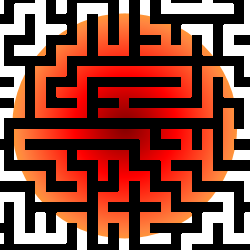Math Competitions: Students Teaching Students
Lesson Plans > Mathematics > CompetitionMath Competitions: Students Teaching Students

While many educators debate the benefits of math competitions in exciting top students and introducing them to new concepts and problem types, my purpose is to write a social aspect of math competitions that is not as often discussed. Students advance academically most quickly when they are interested in the subject matter enough to discuss it amongst their peer groups. Socially, students communicate more with other students than teachers. Excitement over a topic generates discussion, igniting a greater learning process.
Students teach students more quickly because teaching is a social process. Students are more interested in communicating with each other because they are more similar to each other than they are to us teachers. Students love to talk, play games, teach, and learn from each other. This happens for topics that are valued within their peers group so long as the topics are fresh and exciting. When such topics take hold of a peer group, the excitement builds like the power of a tornado, and when the subject is educational, the only thing we can do as educators is get out of the way, let it happen, and count our blessings.
Unfortunately mathematics is not currently valued in Western culture as highly as purely recreational subjects like sports, television, music, or video games. Even the students who already recognize the value of their education (and mathematics in particular) are often unable to find large enough peer groups that foster their interests. The result is that students rarely get to the point of discussing mathematics amongst themselves unless they are told to do so, which only inhibits the excitement of the process.
Math competitions bring students together not only under the banner of mathematics, but also as a game, which appeals to young people, particularly on a social level. Students at math competitions often anticipate what kinds of problems will be thrown at them next. The top students count on finding fresh and exciting material that is not likely to be presented in even their advanced math classes at school. In this way math competitions successfully generate the kinds of social reinforcement students might otherwise only find in purely recreational activities.
Extra-curricular math activities are a great way to generate these kinds of peer groups. Currently, at least in most of the Western Hemisphere, they are one of the only ways. I teach advanced math classes online, and most of the students I teach participate in math competitions. As the number of students participating in online forums and class chatrooms has increased, the pace at which the students are learning the material has quickened dramatically. The results are not simply noticeable, but dramatic. Even without much change to the curriculum, students are moving faster through middle and high school level math into advanced college level mathematics.
Schools that are interested in building up their math programs should strongly consider creating or expanding their math competition programs. The benefits are enormous. Not only will test scores increase and students will gain admittance to more advanced universities (ask a student at MIT how many of their classmates were on math team), but the social benefits to a culture of math and science education will be enormous.

